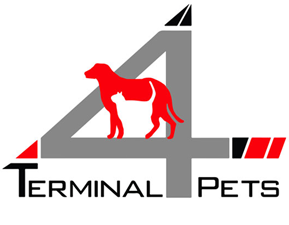Dr. Eytan Kreiner is the founder and CEO at the Israeli Pet Flight Agency Terminal4Pets. He has been providing unique advanced solutions to pet shipment for more than two decades. Here is some of his advice as a veterinarian when traveling internationally with your pet.
The first and foremost important aspect in planning a trip with your pet is their health. When you cross geographical borders into a new environment you are exposing them to new diseases and hazards that are unfamiliar to their immune system. When it comes down to medical procedures, there are musts (country requirements) and recommendations. You should consider different medical treatments that were not a necessity in your home but may be during travel and at your pet’s final destination.
Most common vaccinations and preventive treatments are rabies, de-worming (including park worm), DHLP, cat flu and kennel cough. The type of vaccination depends on the environmental conditions and the dosage depends on your pet’s weight and medical condition. Only a certified veterinarian can determine the kind of treatment and dosage that will meet your pet’s medical needs. Therefore it is important to discuss with our vets what additional treatments and vaccinations are necessary for your pet prior to travel and at their destination.
If you’re planning a trip which includes domestic or international flights, ask our vets to perform a flight related health assessment to ensure that they are healthy for flight and will not suffer from medical complication during the journey.
Many pet owners tend to think that it is in their pet’s best interest to sedate them before the long drive or a flight but that is an urban myth according to Dr. Kreiner: “Every time a pet is sedated it is exposed to a medical risk and that is why we, the veterinarian community, perform anesthesia only when it’s mandatory when performing an invasive procedure or when a pet experiences sever pain after an accident, a surgery etc.”
According to Dr. Kreiner the low oxygen level and dry air inside the aircraft reduces blood circulation and may increase hypothermia, dizziness, stomach ache and more diverse side-effects. In that case, drugs are most likely to worsen the condition and may even create a threat. This is the reason that many airline policies prohibit sedating pets for flight.
It is advised to refrain from feeding your pet before the long drive or flight but to provide them plenty of water before and during the journey in order to prevent your pet from feeling unsettled.
While some pet owners refer to their local vets, more and more people are seeking pet traveling solutions by referring to flight veterinarians with an expertise in international pet travel. Terminal4pets veterinarians can assist you or coordinate with your personal veterinarian to ensure your pet is prepared for their travel.

